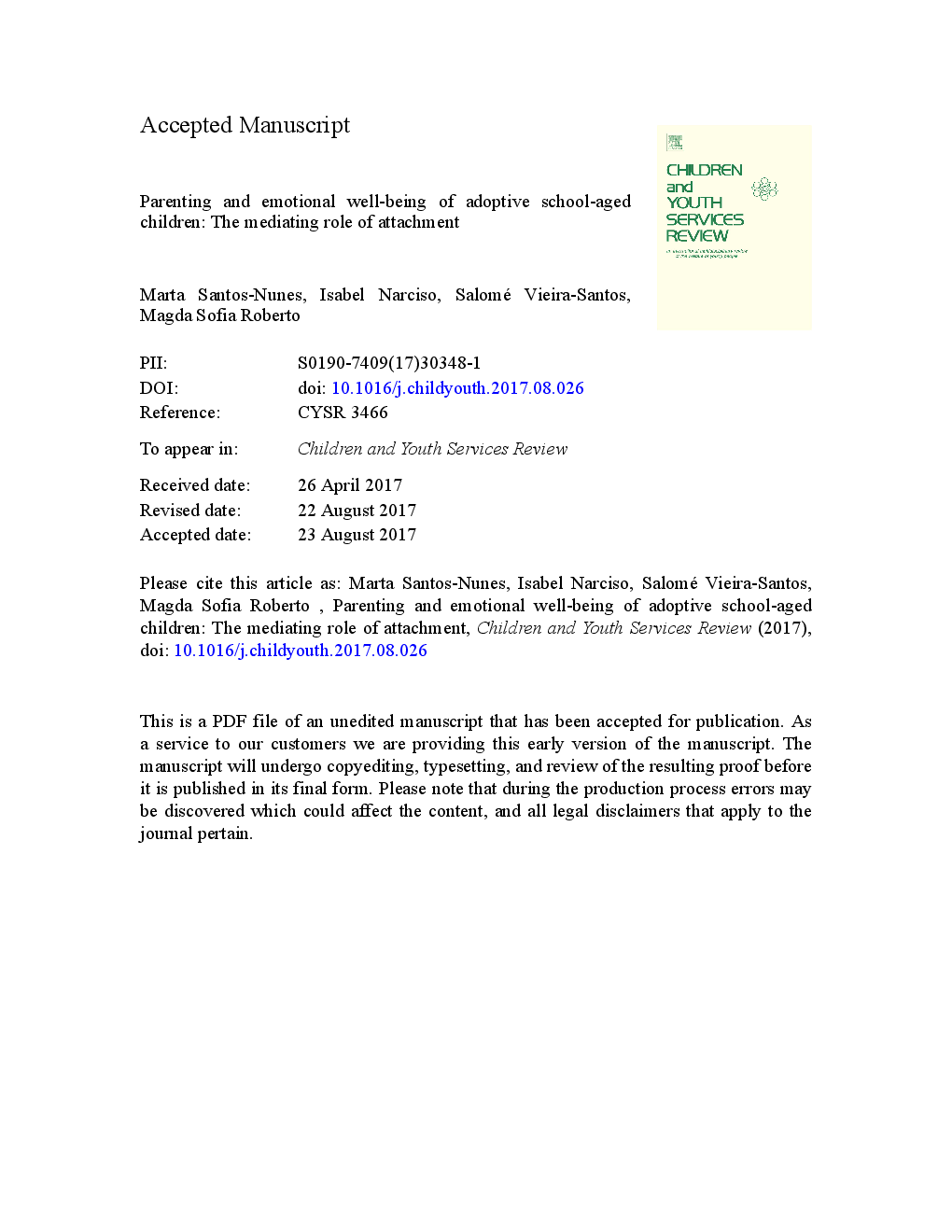ترجمه فارسی عنوان مقاله
رفاه والدین و رفاه عاطفی فرزندان مدرسه سالم: نقش متعهد دلبستگی
عنوان انگلیسی
Parenting and emotional well-being of adoptive school-aged children: The mediating role of attachment
| کد مقاله | سال انتشار | تعداد صفحات مقاله انگلیسی |
|---|---|---|
| 133480 | 2017 | 46 صفحه PDF |
منبع

Publisher : Elsevier - Science Direct (الزویر - ساینس دایرکت)
Journal : Children and Youth Services Review, Volume 81, October 2017, Pages 390-399
ترجمه کلمات کلیدی
تصویب، سبک های والدین، استرس والدین، الگوهای پیوست، رفاه احساسی،
کلمات کلیدی انگلیسی
Adoption; Parenting styles; Parenting stress; Attachment patterns; Emotional well-being;

